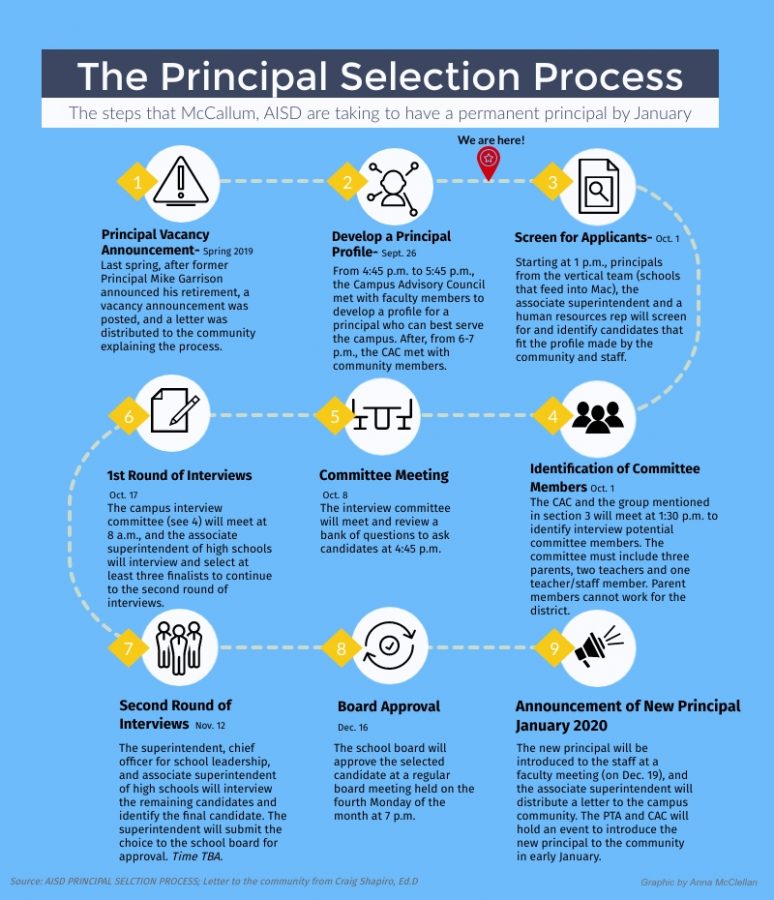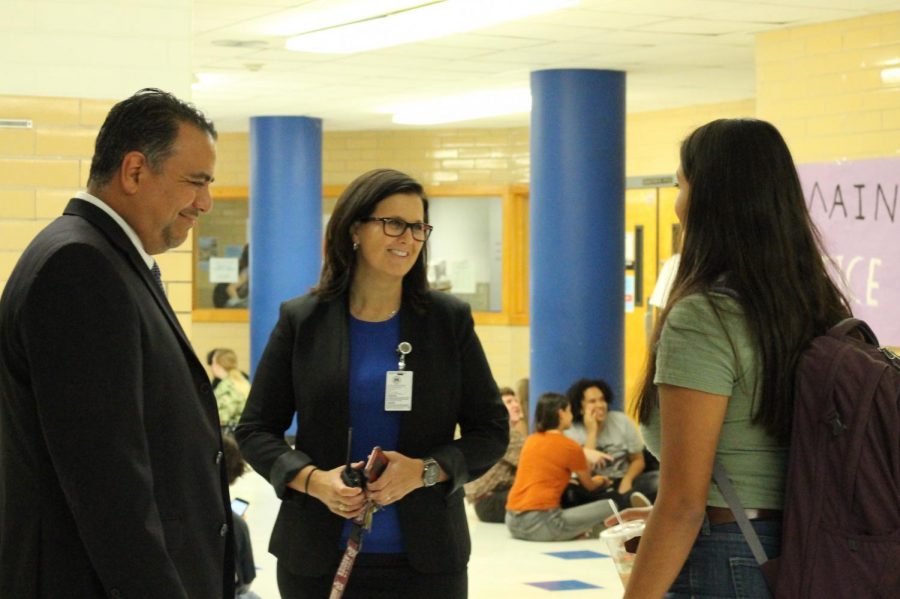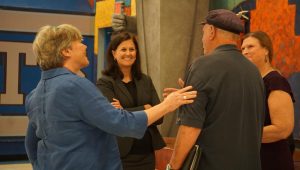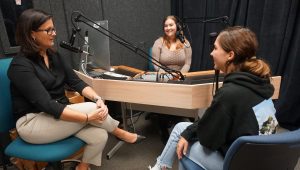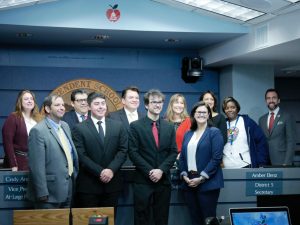Hosack era begins at Mac
New principal explains how, why new policies came to be
Senior Aranza Sanchez talks with principal Brandi Hosack and assistant principal Gabriel Reyes on the first day of school. Photo by Anna McClellan.
October 18, 2019
There were new policies and a new principal in place on the first day of school, and the suddenness of multiple simultaneous changes caused some concern among students comfortable with the school as they knew it at the end of last year.
But the new principal, Brandi Hosack, was quick to say that the changes were not her idea but rather a response to conversations she had with teachers throughout the summer.
“First of all—I didn’t just show up and say ‘This is what we’re gonna need!’ Throughout the summer I met with staff and asked [teachers], ‘What can I do to make things even better or help you in the classroom to streamline what you do?”
Hosack said that the main issues teachers said they faced last year were the use of cell phones in the classroom and the issue of students being tardy to class.
“[The new policies are] more for consistency than anything else. If you read [the policy] as far as cell phones go, the teacher has full autonomy.” Hosack said that teachers have full control over how they regulate the use of cellphones in their class and that she is focused more on helping iron out wrinkles in the school-wide policy that were carried over from last year.
She also stressed the rationale behind the new cellphone policy, which requires that cellphones be used only for academic purposes. Hosack believes that the key for students success in the classroom is collaboration and that cellphone use can inhibit that collaboration.
“I’ve told teachers to just not let students plug up their ears with headphones and completely cut off with one another,” she said.
She said that students ability to collaborate and learn from each other is one of the most important dynamics of an effective classroom.
“There’s so many opportunities in a classroom to be able to talk and learn from each other and have that dialog,” Hosack said, adding that “there are moments in time,” however, where students being plugged into their phones can be beneficial. “If you’re painting a picture we know that music or what have you will be fantastic fuel for creativity.”
Hosack said there is a place for music on campus. “I have music in the office!” Hosack said. She said she just doesn’t want people to use music as a means to shut off meaningful classroom interaction.
In the same vein, Hosack is working to create a tardy policy that doesn’t make a bad situation worse by prolonging a student’s absence from class activities.
“If you show up tardy, and the teacher says ‘Sorry, you’re tardy, get out of here.’ That’s not meant to be how it should work. You should be allowed to stay. We’re going to mark you tardy and follow policy on it.”
The new policies make the consequence fall outside the class period so the student doesn’t miss more class as a consequence of being late.
The third and fourth tardy in any given week leads to a lunch detention and a parent contact, and the fifth leads to a week of lunch detention and another parent notification. The sixth leads to a day of ISS and a parent conference.
“McCallum has a pretty long passing period,” Hosack said. “Seven minutes is the longest [passing period] in the state. Actually anywhere I’ve ever been it’s the longest. It’s plenty of time to get from class to class. It’s mainly meant to put a pep in your step and just get you where you need to be on time.”
Showing up to class on time in the morning is another issue. Hosack encouraged students to communicate with the admin team if they have a legitimate reason why it is difficult for them to get to school on time for first period.
“They should go see their assistant principal who are tasked with monitoring attendance and tell them that they have an issue, and ask how they can be helped,” Hosack said. “If there is a legitimate issue that we know we can help then we won’t penalize a kid as long as they let us know.”
As far as broader policy changes go, Hosack said that she understands that McCallum is a special place and that any new policies need to work on this campus.
“I don’t come in here trying to turn McCallum into any place I’ve ever been,” Hosack said. “People were getting in trouble for cell phones. It was just happening in different ways; people were getting in trouble for tardies, but it was happening in different ways. I have a real hard time if a parent comes to me and says, ‘How come that kid got x when my kid got y,’ or even if a student says that to me.”
Transparency and consistency, Hosack said, are essential.
“I don’t want it to be like ripping off a Band-aid,” Hosack said. “We’re here to help.”
